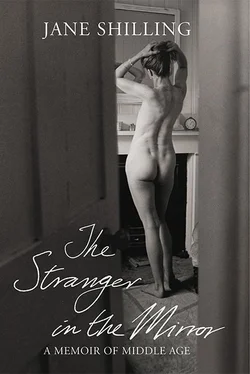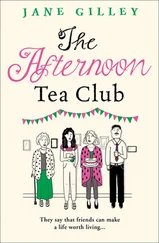More rational, as my forties approached, was the feeling that although it was painful to sacrifice a social and cultural life and the possibility of meeting someone, that loss was minor compared with the anguished renunciation felt by half a dozen of my friends who would have loved to have had children and would have been excellent mothers, but never had the opportunity because they didn’t meet the right man, or met him too late to bear his children, or thought they’d met him, only to lose him again just as their fertility began to dwindle.
Even at the very worst moments, when I felt like running away from home or shoving my son out of the house and boarding up the entrance so that he couldn’t get back in again, I never quite lost my grip on the small hard gem of feeling that the accidental pregnancy had been, above all, an amazing stroke of luck.
Looking through the album of pictures that Linda gave us when she left prompted me to sort out the untidy bundles of photographs that I had taken over the years. As I leafed through them I saw with amazement that we had been happy. At any given moment, if I had been asked how things were going, I should have said, very difficult, a continual exhausting struggle with money, with alienation from my family, with solitariness and the retreat from love, the grim, almost physical, daily sense of grappling with the apprehension of being cared for by no one, of having only myself to reinforce my sense of self – of existing in a constant state of dangerously slippery solipsism.
But looking at the pictures of my son – in the park, on the beach at Dymchurch or in Devon, in the square at St-Florent, at Hampton Court or on the rough little low-goal polo ground at Ham, I saw that it wasn’t true; that the glass may have felt fixed for sixteen years on Stormy Weather, but that at the moments caught and preserved in these pictures we had been laughing, lucky, happy and complicit in each other’s company; having a lovely time, in fact.
Even now, when I felt myself shrinking and diminished – dwindling into a tiny scolding Mrs Pepperpot as he grew larger, more powerful, more hugely indifferent to my shrill, diminished presence, while still sucking out of me the vital energy I needed to go on, to work, to write, to keep up the momentum of the household – the old love, the comic double act of our attachment somehow remained powerful.
When our joint narrative seemed broken down almost beyond repair, storytelling at its most basic and melodramatic could get it going again. It was the fundamental element of our relationship. Every night, from the day I brought him home from hospital as a newborn baby, I used to read to him. When he woke in the night or was ill, I would tell him a story. As a child myself, I had peopled my world with characters from the imagination of Beatrix Potter, Mary Norton, E. Nesbit and Anthony Buckeridge. Now I passed on the habit to my son.
His nanny had introduced him to the storytelling of soap operas – Neighbours, EastEnders – and now he passed that habit back to me. Corrie, The Bill, Waterloo Road, The Vicar of Dibley – anything with a strong narrative offered us a place in which to take temporary refuge from our emotional storms; to watch the consoling spectacle of other people getting their relationships spectacularly wrong, and sometimes chancing upon the archetypes of forgiveness, of the way back from what seemed unforgivable.
‘I wrote down those things you said,’ said my son one day, during a Stenders -brokered truce after a particularly vicious and protracted battle. ‘I wrote them all down on a piece of paper to get them out of my head.’
What did you do with the paper then? I asked, full of shame at this evidence that, small and powerless as I felt myself to be, I had succeeded in injuring him so gravely. He said he’d screwed it up and pushed it behind the wardrobe but when I went to look for it, this written testament to my fury and unkindness and failure as a mother, in order to take it away and make it seem as though the words had never been spoken, it was nowhere to be seen.
From the repeated pattern of fight and truce a revelation at last emerged. In a moment of anguish following yet another bloody, pointless skirmish over homework from which we had both retired hurt, I suddenly saw that all my hard-won self-sacrifice had actually been a sort of complicated selfishness. I’d shut out the world as much as I’d been shut out from it. I’d turned my loneliness into a virtue, made a fetish of my independence and ability to cope and now, when I couldn’t do it on my own any longer – because what my son needed more than anything was to get away from the huis clos that was our life together, and that was the one thing I couldn’t do for him – I had no one to turn to.
Years had passed: several years and then more than several during which I would have said I was in retreat from love, if only there had been any love to retreat from. I didn’t look for it and it didn’t seek me out. From time to time someone would take an interest, but I gave them little encouragement and I never fell in love.
One day I found myself crossing the road at the same time as an older man with whom, once we had reached the pavement on the other side, I fell first into conversation and, after a while, into a comfortable habit of weekly lunches. Sometimes I thought this state of mildly flirtatious emotional limbo suited me very well. It provided me with the grown-up conversation of which I had felt starved for years, along with an appreciative male eye and a decorous sexual frisson. There was no risk involved in this charming but essentially tepid relationship; no danger that a storm might blow up and come roaring through my house, sweeping aside all my tidy routines and certainties. If it all came to a sudden end I should be sorry, but not very. There was no chance of my heart being broken again: it had been so long since I had fallen in love that I doubted whether I still had the ability.
Yet sometimes I felt restless; discontented and cross with my old friend, or myself, or with the thin, wine-and-water emotional sustenance that was all the attachment could offer. The gentle, daughterly flirtation was enough to remind me of what I had been missing for so long. I began to feel troubled; cheated; to wonder if I’d love anyone, or be loved, ever again.
If I’d allowed myself to think about it, I should have regretted most bitterly the thing I should never now have, even if I were to fall in love again. Even if I were to find my true love immediately, and marry him, and stay married for the rest of my life, the best of it – the real richness of a partnership – was unattainable. I’d never now know what it was like to build a life with a man I loved: have his children, raise them in the complicity of a successful family. I tried to stifle the thought of it as much as I could. To think about it made me feel as though great caverns of sadness were opening up beneath my feet, into which I might vanish altogether.
To stop myself being engulfed by regret, I sometimes found it helpful to contemplate the marriages of my female acquaintance, some of whom had promised themselves, for better or worse, as long as they both should live, to men who seemed like huge, demanding toddlers, incapable of taking care of their own basic needs, emotionally fragile, at odds with the world around them – always losing things or breaking things or getting upset because their plans had gone wrong.
‘But Jane,’ said Isabelle over the road, who now lived alone with her two sickly cats, but had been a racy beauty in her day, ‘that’s just men. It’s what they do.’ I wasn’t altogether convinced that it was. I didn’t recall, in any of my handful of serious love affairs, being called upon to act as the mummy or nanny of my lover. Either this was something that overcame men in middle age, or else I just happened to have friends who were quite content to be married to these large male infants.
Читать дальше












